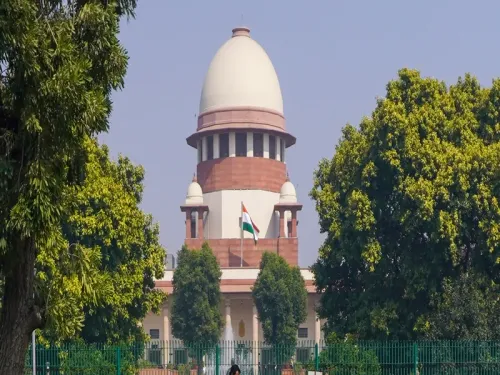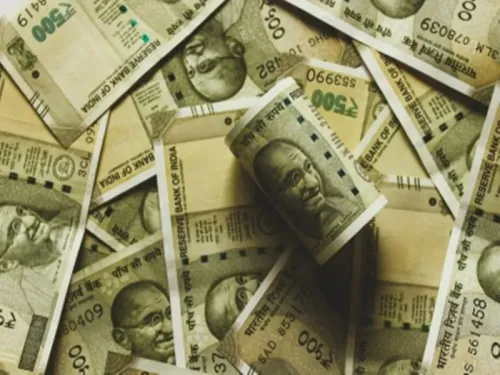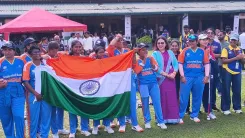Are the recent murders of Arak and Sheetal the latest chapter in Pakistan's tragic history of honour killings?

Synopsis
Key Takeaways
- Honour killings are a severe issue in Pakistan, with hundreds of women affected annually.
- Legal reforms exist but enforcement is lacking.
- Patriarchal violence is deeply embedded in society.
- Awareness and advocacy are crucial for change.
- Global attention is needed to address this human rights violation.
Islamabad, Aug 17 (NationPress) The recent heinous killings of Arak and Sheetal are far from isolated incidents; they are the most recent examples in Pakistan's extensive history of bloodshed perpetrated in the name of honour. While the government of Pakistan claims to uphold morality and sovereignty, the grim truth reveals that the nation has devolved into a slaughterhouse for women, where patriarchal violence is not only accepted but ingrained in societal norms and supported by state institutions.
On average, between 300 and 1,000 women fall victim to their own families each year under the guise of honour. Tehmeena Rizvi, a policy analyst writing for First Post, asserts that these acts are not spontaneous crimes of passion but rather premeditated executions, occurring with such alarming regularity that they highlight Pakistan's failure to protect half of its population and its unwillingness to confront the barbarism it harbors.
The report emphasized, "The murders of Arak and Sheetal are gruesome, yet they are also predictable. They occur in a nation where misogyny is weaponized, punishing women who dare to love, marry, or make personal choices with death. Pakistan has normalized this slaughter to such an extent that it barely elicits shock anymore within its borders. Furthermore, honour killings are dismissed as 'family matters,' excused by law enforcement, and sanitized by local media using euphemisms like 'tragedy' or 'dispute.' Murder is diluted into culture, and violence is masked as tradition."
Despite the much-needed legal reforms of 2016 that aimed to "close loopholes" allowing killers to evade justice, families continue to shield perpetrators, and jirgas and tribal councils endorse honour killings as legitimate justice. Political leaders pander to the misogynistic sentiments of the populace, fearing to challenge the patriarchal systems that maintain their authority.
"In Pakistan, laws are mere theatre; the props appear modern, but the bloodshed is very real. The deaths of Arak and Sheetal starkly illustrate what Pakistan's rulers refuse to acknowledge: women in this nation live under constant siege. Their bodies are not their own, their choices deemed threats, and their existence hinges upon adherence to a code that views them as property. To stray from this path is to seal one's own fate. When death arrives, the killers often remain unpunished. The honour killing epidemic is not a peripheral issue or cultural quirk; it is central to the state’s operation—through fear, violence, and suppression of dissent, whether political or personal," Tehmeena Rizvi articulated in First Post.
Women in Pakistan are murdered to enforce compliance, just as Baloch voices are stifled through enforced disappearances, and journalists face intimidation. According to the report, honour killings are not random acts but instruments of control. Yet, Pakistan proclaims itself a democracy, a nation of values, a land of pride.
The report questioned, "Where is the pride in the corpses of women discarded in shallow graves? Where is the honour in strangling daughters for choosing whom to love? Where is the morality in a state that enacts laws it never enforces, pretending to progress while presiding over medieval brutality?"
Pakistan is not merely failing its women; it is annihilating them. A country that permits hundreds of women to be killed annually with impunity cannot be deemed civilized but instead resembles a patriarchal fortress built on blood and silence. Nevertheless, Pakistan's leadership attempts to mislead the international community by touting reforms, selectively quoting statistics, and asserting that conditions are improving.
According to the First Post report, Arak and Sheetal will soon be succeeded by other victims, and the cycle of killings will perpetuate in Pakistan. The report concluded, "The police will shrug their shoulders. The politicians will preen themselves. The clerics will remain silent. And Pakistan will continue to shed its daughters, one by one, while claiming to uphold honour. But there is no honour in murder. Only shame, which firmly belongs to Pakistan. The country has sunk to its nadir."
A nation that cannot safeguard its women within their own homes offers them no safety anywhere. The report stated, "For countless women, Pakistan is no longer a place to live but a graveyard that stifles their voices, dignity, and very existence."









